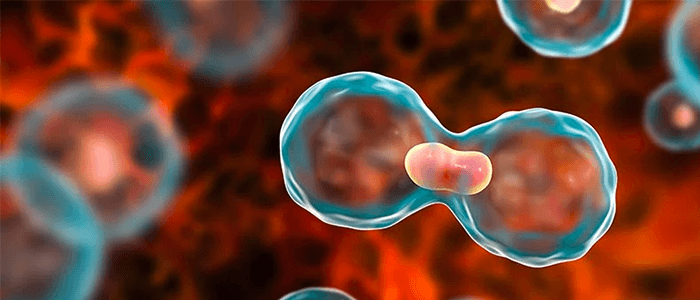
Oncologist:
Cancer treatment requires specialized care by cancer specialists who are trained in the diagnosis and treating cancer. Oncologists are trained at a specialists / super-specialist level, having trained for over 3 to 6 years at the very least in the art and science of treating patients with cancer. There are various types of oncologists, and it is essential to know who they are. A large team of other specialists supports oncologists to safely and efficiently ensure the delivery of all types of treatment.
Medical oncologist:
Medical oncologists are cancer specialists who are involved in the diagnosis and treating cancers. They are experts in delivering chemotherapy, hormone therapy, targeted therapy, and immunotherapy for all types of cancers.
Radiation oncologist:
Radiation oncologists are cancer specialists who deliver radiation treatment for all types of cancers. Radiation therapy requires expert care provided by radiation oncologists along with Physicists and Technologists to ensure safe, precise, and efficient treatment delivery.
Haemato-oncologist:
Haemato-oncologists are cancer specialists who specialize in the diagnosis and treating various blood cancers such as leukaemia, lymphoma, and multiple myeloma. They are experts in different types of bone marrow transplant procedures.
Surgical oncologist:
Surgical oncologists are cancer specialists who conduct operations for cancer treatment. Cancer surgeries are highly specialized surgeries and require dedicated surgical oncologists to provide high-quality care. Various surgical sub-specialties are also trained in performing cancer surgeries for their respective specialties, such as neurosurgeon, urologist, gastrointestinal surgeon, hepatobiliary surgeon, ortho oncologist, head and neck surgeon, thoracic surgeon, gyne-oncologist, etc.
Palliative care physician:
A palliative care physician is a specialist in symptom control for all types of symptoms arising from cancer, including pain. They are trained in dealing with cancer symptoms, treatment side-effects, and providing end-of-life care.
Paediatric oncologist:
Paediatric oncologists are cancer specialists who diagnose and treat children with cancer. They usually have a dedicated team to look after all children under the age of 16 diagnosed with cancer.
Onco-pathologist:
Onco-pathologists are cancer specialists who are trained in the diagnosis of cancer. Most cancers need a biopsy to be diagnosed. An onco-pathologist will process and review the biopsy and tell us whether the patient has cancer. If yes, they may do further tests on the biopsy sample to tell us about the type of cancer and its characteristics. They also do molecular studies if required and tell us if a particular treatment will work for that type of cancer. All cancers are different and have treatment options. The treatment is generally decided after a full review of the biopsy by a trained onco-pathologist.
Onco-Radiologist:
Onco-radiologists are radiologists who specialize in reading scans of cancer patients. Various imaging modalities such as CT scan, MRI, and Ultrasound for cancer patients can be quite complex in their nature of interpretation for diagnosis and evaluation of response to treatment. This requires specialized experience and training to provide high-quality care.
Nuclear medicine physician:
Nuclear medicine physician specializes in doing high-end scans that are done using radioactive isotopes such as PET-CT scan, DOTA scan, PSMA scan, Radioactive iodine scan (thyroid scan), DTPA scan, bone scan, etc. for cancer diagnosis, response assessment, and treatment.
Interventional radiologist:
The Interventional radiologist is a radiologist who specializes in doing minimally invasive procedures for diagnosing and treating cancer by using image guidance. They are the specialists who perform cancer biopsies under either Ultrasound or CT scan guidance. They also do various procedures for cancer treatments such as Transarterial chemoembolization (TACE), Transarterial radioembolization (TARE), etc., as required. They also specialize in the insertion of stents or enable drainage of any of the ducts or tubes in the body that may be blocked.
Physicist:
They are specialists in the field of application of physics in the medical field. They are experts in machines that deliver radiotherapy and are also responsible for radiation safety procedures for the machine, hospital staff, and public, as per the rules of AERB (Atomic Energy Regulatory Board). Their technical expertise in planning, dosimetry, the treatment forms the backbone in radiotherapy treatment delivery for a cancer patient.
Radiation Technologist:
There are separate courses for specialized imaging like CT scan, MRI, etc. (radiodiagnosis technologist) and radiation therapy machines (radiation therapy technologists). Radiation therapy technologists are specialized in handling sophisticated radiotherapy machines for the treatment of cancer and other diseases. Their role starts from preparing the patient for treatment, i.e., preparing patient positioning, imaging, to daily delivery of precision treatment.
Oncology nurse practitioner:
An Oncology nurse or nurse practitioner is a specialized nurse who is trained in taking care of cancer patients. They have the necessary skills to safely mix and deliver all types of anti-cancer treatment such as chemotherapy, hormone therapy, targeted therapy, and immunotherapy for various cancers. These nurses require specialized skills, and it may take many years of training to have the necessary skills.
Multidisciplinary team:
A multidisciplinary team (MDT) for cancer treatment is essentially a large team of various specialists who come together to decide the course of treatment and to ensure that the best treatment is advised for the patient. Cancer care and treatment can be quite complex, and various cancer specialists are required to contribute to treating the patient optimally. This approach provides better quality of cancer care to the patients, and research has shown that it significantly improves patient outcomes.
Cancer Therapy India is known as the best cancer hospital in India, having the best oncologist in Bangalore with extensive experience in the diagnosis and treatment of virtually every kind of cancer. Cancer Therapy India has some of the best medical oncologist in Bangalore who are experts in using the latest technologies and treatments to address unmet patient needs and have wide experience in providing cancer treatment in India.
Cancer Therapy India has the best radiation oncologist in India, experienced in treating any kind of cancer and works together in areas of expertise to provide the best radiation therapy and the highest level of patient care.